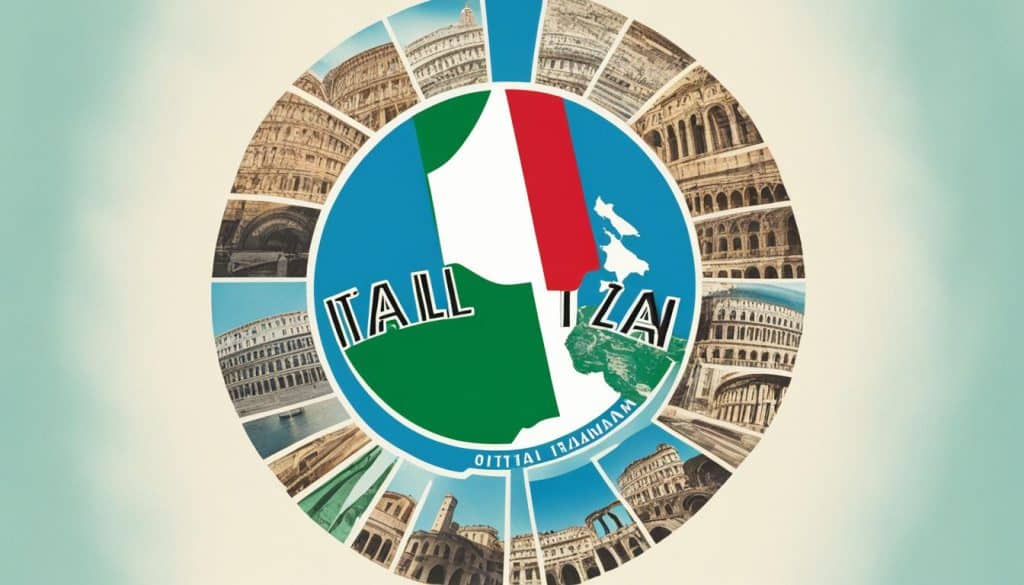Starting a small business in Italy requires learning about its laws and business settings. It’s a big economy in the European Union, welcoming investors from everywhere. First, you incorporate the company, register with tax authorities, get a VAT number, and open a bank account.
- Understanding the Italian Business Environment
- Legal Structures for Businesses in Italy
- Types of Limited Liability Companies (S.R.L.)
- How to Obtain an Italian Business Visa
- How to open a small company in Italy
- Registering with Italian Tax Authorities
- Execution of Articles of Association
- Obtaining a Company VAT Number
- Issuance of the Certificate of Incorporation
- Opening a Bank Account for Your Company
- Understanding Italian Business Taxes
- Cost of Setting Up a Business in Italy
- Overview of Popular Business Sectors in Italy
- Source Links
Starting a limited liability company (S.r.l.) is easy, with no need for minimum capital. It can begin with just 1 Euro. You’ll need to appoint directors, pick shareholders, write important documents, and make articles of association with a notary. Also, get a tax code and register with the Commercial Register. Usually, setting up takes about 5-7 days, but it might take up to 15 days sometimes.
Knowing all the steps for forming a company in Italy makes the process smoother.
Key Takeaways
- Incorporate your business, register with tax authorities, and open a bank account are key steps.
- You can start a limited liability company in Italy with just 1 Euro.
- Normally, the incorporation process is about 5-7 days for regular steps.
- Investors from outside the EU can easily start a business in Italy.
- Good planning helps meet legal needs effectively.
Understanding the Italian Business Environment
Italy’s economy is full of chances for foreign businesspeople looking to invest there. It’s known for its solid economy and does well on the Global Innovation Index. This shows it’s a top place for new business activities.
Italy’s Economic Position
Italy has a strong economic base, making it one of the EU’s biggest economies. This stability is good for both local and international businesspeople. Its varied economy includes manufacturing, tech, and tourism, offering many investment opportunities.
Investment Opportunities
Though known for its bureaucracy, Italy wants to bring in business talent. Fields like fashion, food, and advanced manufacturing are looking good for foreign entrepreneurs. There are government plans and perks to make investing easier and more beneficial.
Business Culture and Practices
Knowing Italy’s business culture is key to success. Building trust and relationships is very important, and they prefer long-term partnerships. Informal ways of doing business are normal. Having a strong network helps a lot with starting a company in Italy.
Legal Structures for Businesses in Italy
Understanding different business legal structures in Italy is key to forming a company. Italy offers various options for businesses. Here are the main legal structures you can choose from.
Sole Proprietorships
Sole proprietorships, known as “ditta individuale,” are simple. The owner runs the business without a separate legal entity. The owner also handles all business debts personally.
Partnerships
Partnerships are popular in Italy. They come in types like S.n.c. (Società in nome collettivo) and S.a.s. (Società in accomandita semplice). Two or more people manage and share the business’s liabilities. Each partnership type has its own set of rules.
Corporations
Corporations include S.r.l. (Società a responsabilità limitata) and SpA (Società per azioni). They are complex and act as separate from their owners. Owners enjoy limited liability. Corporations suit larger ventures and have a board for management.
Choosing the right legal structure is vital for any business in Italy. Getting advice from an Italian notary or adviser is highly recommended. They can help tailor the advice to your needs.
Types of Limited Liability Companies (S.R.L.)
In Italy, the limited liability company or S.R.L. is quite popular. It offers flexibility and protects shareholders. Entrepreneurs have two main options: the standard S.R.L. and the Simplified S.R.L. (S.R.L.S.).
Traditional S.R.L.
The traditional S.R.L. allows for various business activities. There’s no upper limit on the amount of share capital. It suits both small and large companies. Shareholders enjoy protection from business debts through limited liability.
Simplified S.R.L. (S.R.L.S.)
The Simplified S.R.L. is a cheaper, streamlined option. It’s perfect for those starting out, with setup costs low and a maximum capital of 9,999 Euros. Only individuals can be shareholders, blocking other companies. Its easy setup process makes it great for new Italian businesses.
How to Obtain an Italian Business Visa

Getting an Italian business visa is crucial for non-EU folks aiming to start a business in Italy. To apply, you must understand what’s required and the steps involved.
Requirements for Non-EU/EFTA Nationals
If you’re from outside the EU, you’ll need several things:
- Proof of enough income or financial stability
- Proof of where you’ll stay in Italy
- A business plan that explains your business idea and plans
- A clean criminal record
- Health insurance coverage
Application Process
The process to apply for the visa includes:
- Collect all needed documents, like a visa form and photos.
- Hand in your application at the Italian consulate or embassy back home.
- Go to a visa interview, if asked, to talk about your business plans.
- Wait for the decision, which usually takes a few weeks.
Tips for a Successful Application
For a better chance at getting your visa, try these tips:
- Make sure all documents are correctly filled out and translated to Italian.
- Your business plan should be detailed and clear, showing it will work and help the economy.
- Keep in touch with the consulate or embassy to quickly solve any issues.
- Consider getting help from experts to guide you through complicated parts.
How to open a small company in Italy
Starting a small business in Italy involves some important steps. It’s crucial to understand what’s needed and follow the right path to set up your business. This helps you blend into Italy’s vibrant business world smoothly.
Key Requirements
To kick off, you need to choose a director and shareholder(s) for your business. Meeting the minimum capital need and registering your company with the Italian authorities is a must. Don’t forget to get a tax ID number (codice fiscale) too.
Step-by-Step Process
The steps to register a company in Italy are clear:
- Get a tax ID number (codice fiscale).
- Sign the articles of association with a notary’s help.
- Register for a VAT number.
- Get a certificate of incorporation from the Chamber of Commerce.
- Open a company bank account.
Important Considerations
When setting up your business in Italy, knowing the local ways of doing business is key. Getting help from local experts or consultants can make things easier. Also, understanding Italian business culture will help you build strong relationships and smooth your operations.
Registering with Italian Tax Authorities

Getting set up with the Italian tax authorities is key for businesses starting in Italy. Both EU and non-EU businesses need a codice fiscale to operate. This tax code is vital for your tax identity in Italy. Every business action and incorporation step requires it.
The process to get this tax number is simple. You can get your codice fiscale in person or through a proxy by power of attorney. Using a proxy is especially helpful for non-EU investors away from Italy during their business setup. Getting this tax id is crucial for your company’s legal and operational setup.
The steps to get your codice fiscale are clear:
- Fill in an application form at the local Italian tax office.
- Show a valid ID like a passport or national ID.
- Non-EU nationals must have a valid business visa or permit.
- If using a proxy, they need a notarised power of attorney.
After registering and getting your codice fiscale, move on to other essential steps. These include obtaining a VAT number and registering with the Commercial Register. These actions confirm your business’s presence in Italy and help with operations.
In brief, starting with the codice fiscale, Italian tax registration is fundamental. It’s essential for legal compliance and recognising your business activities.
Execution of Articles of Association
Executing the articles of association is crucial during the Italian company start-up phase. It’s about making the company’s basic rules official. These rules help manage the company’s activities. The notary ensures everything meets Italian legal standards.
Personal Execution
Shareholders go to the notary’s office to sign the documents. This way, they can ask questions and sort things out quickly. It’s best for those wanting hands-on involvement in the set-up process.
Power of Attorney
If you can’t be there, you can choose someone to sign for you. This method needs the power of attorney document to be officially recognised. Notary services check that everything follows the rules.
Virtual Meetings
Italy also lets you sign documents online through virtual meetings. You just need a digital signature. This method is secure and flexible. It suits today’s digital world and helps with any travel bans.
Obtaining a Company VAT Number

Getting a VAT number, or Partita Iva, is crucial when starting a business in Italy. You must apply at the Agenzia delle Entrate, Italy’s tax authority. Luckily, this important number is usually given on the application day. This helps businesses quickly meet Italian tax rules.
The Partita Iva is essential for managing your company’s tax duties and for correct invoicing in Italy. Without this number, following tax laws and running smoothly would be hard. The right VAT registration process makes beginning a new business venture easier.
Issuance of the Certificate of Incorporation
After you start your Italian company registration, the next key step is getting the Certificate of Incorporation Italy, also called Visura. The Chamber of Commerce hands out this important paper.
To get this certificate, make sure you submit all needed papers right. You need articles of association, by-laws, VAT number, and tax code.
The Chamber of Commerce checks everything carefully. If everything meets their standards, you’ll get the certificate in 2-3 business days. This means your business in Italy is officially recognized. Now you can open a business bank account and begin your operations.
Opening a Bank Account for Your Company

Opening a bank account for your company finalises the incorporation in Italy. It lays the groundwork for managing your business’s money. Meeting Italian banking rules is crucial for smooth financial operations.
After registering your business and getting your Visura, you’re recognised officially. A company bank account in Italy is key for handling money, like capital deposits and daily transactions.
Choosing a bank that fits your business needs is the first step. Banks like UniCredit, Intesa Sanpaolo, and Banco BPM provide special services for businesses.
For a smooth financial setup, keep these points in mind:
- Initial Documentation: Have your Visura, articles of association, tax code, VAT number, and ID for directors and shareholders ready.
- Choosing the Right Bank: Look at different banks’ services and fees. Pick one familiar with your sector and offers international services if needed.
- Account Types: Choose between a business current account for everyday use and a savings account for reserves or future investments.
In summary, getting a company bank account in Italy completes the incorporation. It helps your business operate well locally and globally.
Understanding Italian Business Taxes
Italian business taxation matters a lot for companies in Italy. Taxes vary with the type of business. For example, sole proprietorships and partnerships pay income tax on what they earn. Meanwhile, corporations face corporate tax Italy rules.
Following these tax rules is key for smooth operations and avoiding legal issues. It’s important to stay current with Italian tax laws for successful planning. When managing taxes, businesses should look at several things:
- Income tax: This is on earnings for sole proprietorships and partnerships.
- Corporate tax: Applies to companies, in line with corporate tax Italy standards.
- VAT (Value Added Tax): Most businesses need to handle this for billing and staying legal.
Businesses in Italy should keep good records and understand tax regulations to meet their tax duties well. Getting help from a local tax advisor can make dealing with the complex tax system easier. This ensures businesses understand Italian business taxation fully.
Cost of Setting Up a Business in Italy
Starting a business in Italy means facing various costs. These depend on your business type and the services you need. It’s key to plan for these costs to smoothly set up and run your business.
Registration Fees
To kick things off, you’ll need to pay registration fees. This is for signing up your company with the Italian Commercial Register. It helps you get the legal paperwork needed to operate.
Notary Fees
Notary services are also critical. They handle the legal side of setting up your articles of association. The cost of a notary in Italy changes, but it’s a crucial step. It makes sure your documents are legally okay and recognized.
Additional Expenses
But there’s more than just registration and notary costs. Other expenses include:
- Services for a registered office if you need a local address
- Trademark registration fees to keep your brand safe
- Various taxes linked to your business field
Thinking about these extra costs will help you get financially set for starting your business in Italy.
Overview of Popular Business Sectors in Italy
Italy offers great chances for new businesses. Its rich culture and strong economy make some sectors very attractive. Knowing these can help start-ups succeed in Italy.
Retail
Italy’s retail mixes family stores and big chains. This sector thrives on quality and unique shopping experiences. Cities like Rome and Milan are perfect for retail ventures.
Science and Technology
Italy excels in biotech, pharmaceuticals, and IT. The government supports this growth with grants. Entering this sector can benefit tech-focused companies.
Manufacturing
Manufacturing is key in Italy, especially in automotive and textiles. Italy’s renowned craftsmanship offers a competitive edge. Businesses can leverage this for success.
Tourism
Tourism is vital in Italy, drawing millions each year. It opens doors for hospitality and travel services. Tapping into this can ensure growth for new businesses.













